Stories of Survival
Charlotte Scalf: In Her Own Words
June 22, 2011
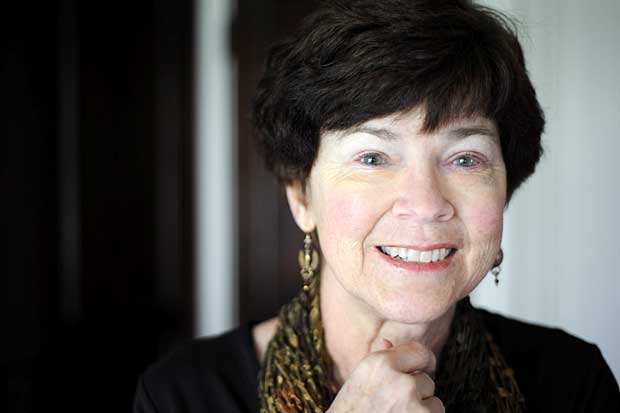
It had always been my intent to retire as a young woman so that I could enjoy a life of leisure for many years.
Well, it didn’t turn out quite like I’d expected.
In the spring of 2001, at age 53, I retired from teaching at The Tennessee School for the Deaf in Knoxville, Tennessee. Gradually, problems arose to make my retirement less than the peaceful time I had imagined.
My mother’s health was rapidly deteriorating and my father was relying heavily on me for emotional support. As their relationship became strained, I found myself becoming a caregiver/mediator to my parents.
As I struggled to manage a family situation I could not possibly fix, the casual after dinner drink evolved into two drinks. With each additional crisis, I added more alcohol to my routine just to calm down and fall asleep.
In addition to the stress of being my parents “marriage counselor,” I was soon devastated by my diagnosis of non-Hodgkin’s lymphoma in early 2004.
It wasn’t even believable! My husband, Skip and I felt stripped of our dream of growing older together. The plans we had made were suddenly torn from us as we wondered if I would soon die.
While still pondering the possibility of my own death, my dear mother died May 28, 2004. My grieving process did not end before my father was involved in a tragic car accident on August 16, 2005 (my husband’s and my wedding anniversary). I was having my first series of chemotherapy at the time. While my father survived several surgeries, he spent the rest of his life in a nursing home and died of pneumonia in May 2006.
My grief became unbearable. Now I was drinking very heavily and I began to acknowledge that I had become an alcoholic.
Amazingly, I continued my alcohol habit throughout two treatments for the lymphoma – standard chemotherapy and then Zevalin, a form of radioimmunotherapy. Both treatments worked for a short time, but in each case, my cancer returned in less than nine months.
The possibility of a stem cell transplant loomed before me. I knew that my previous treatments would pale in comparison to the rigorous chemotherapy I would have for such a drastic procedure. I couldn’t possibly continue drinking while undergoing such an experience. I accepted the fact that I had to stop – and knew I would need help.
In June 2007, I entered the detox unit at our local Baptist Hospital. I remember being desperately afraid, trembling all over and sobbing quietly. As I said good-bye to my family, I wanted to turn around and go back to the safety and security of my home, but I walked on through double doors into a rather bland ward to my hospital room.
This was a defining moment in my life. Was I tough enough?
But as the nurses smiled and other patients greeted me warmly, I began to feel better.
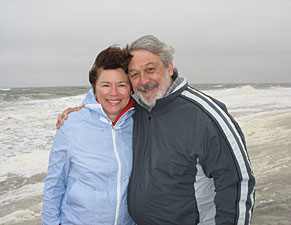
Charlotte and husband, Skip, enjoy a day at the beach on Amelia Island, Fla., in March 2008 before her stem cell transplant. (Photo courtesy of Charlotte Scalf)
When the time approached to leave the hospital, I was afraid to leave the sanctuary of the ward. But when Skip came to get me, those fears faded away and were replaced with my determination to stay “clean.” I left armed with a small arsenal of prescription medications to assist me in that process.
I was beginning to feel that I was tough enough to beat this addiction – and cancer.
With my stem cell transplant date approaching quickly, Skip and I began making preparations. The most important plan had been in place for a few weeks. An unrelated donor had been identified through the National Marrow Donor Program when my own sister was not a suitable match.
I felt this was my last, best chance for long term remission.
Who was this young woman who had suddenly become my Angel Donor? I wanted to know more about her, but I would not even know her name for a full year. I did know she would spend precious time and possibly endure significant discomfort in the process. I also knew that her commitment to a complete stranger would be my best chance for a longer life. Feeling she had been sent to me by God, I said prayers of thanks to Him every night.
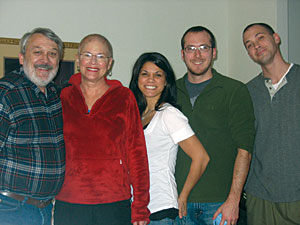
Charlotte spends time with her family during her transplant in January 2009. From left, Skip, Charlotte, daughter-in-law Tuesday, and sons Anthony and Daniel. (Photo courtesy of Charlotte Scalf)
After 37 years in the same house in my quaint Knoxville neighborhood, I had to move to Nashville to go through treatment at Vanderbilt. Luckily, we found a nice two-bedroom furnished apartment, in a complex full of mature cherry trees and dozens of bungalows similar to our own home.
I walked vigorously and confidently through the streets of my new neighborhood, feeling strong enough to overcome any problems that might arise.
Jan. 6, 2009: Day Zero, the day of my stem cell transplant finally came. As I lay in my bed, I celebrated as my donor’s peripheral blood went into my veins, feeling optimistic that her immune system would destroy my cancer.
I was surprisingly unfazed by the stem cell transplant that I had feared and fell into a false sense of security.
As time wore on, the effects of the transplant started to become more noticeable and my own immune system was almost completely destroyed. Because I was vulnerable, viruses like CMV (cytomegalovirus) not only came but stayed – and sent me back to the hospital with CMV-induced pneumonia.
As one problem and then another developed, I watched my team of doctors – Drs. Savani, Jagasia, Kassim and Schuening – with fascination and relief. I developed a confidence in their ability to fix anything.
What lay before me was a daunting uphill battle. A week after narrowly beating the pneumonia, my physical therapist challenged me to walk 20 feet.
I was horrified. “Impossible,” I thought. But, with my husband’s help, I did exactly that.
My husband and my sister stayed long hours in my room every day. They walked with me as often as I suggested it and brought me steaks and potatoes from local restaurants to stimulate my meager appetite. After a week my sister returned to work in Knoxville, leaving Skip to manage by himself.
I always insisted that my husband leave the hospital and go back to our apartment to unwind and sleep. He reluctantly complied, leaving his jacket behind. He didn’t know I used that fleece jacket as a blanket, tucking it just under my chin so I could smell his scent during the night.
My precious husband of 39 years held everything together. His devotion to me was unwavering. When we came “home” to our apartment, I was exhausted and, I suspect, so was he. When I fell into my bed, his work was just beginning. He lined up pharmacy bottles on his desk like little soldiers and counted pills into my medicine tray. He cleaned, cooked, washed clothes and walked with me to the restroom in the middle of the night so I would not fall. He was the best caregiver anyone ever had.
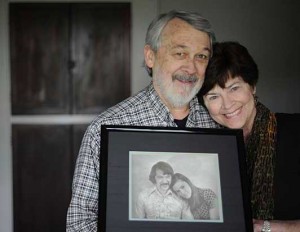 Back in our apartment I couldn’t believe I had to go to the clinic the very next morning. After all, I had been in the hospital for two weeks and was still incredibly weak. After breakfast, Skip bundled me up like a little 2-year-old child and began the tedious task of getting me to the clinic. Once there, we usually stayed for hours. Those days repeated themselves for two weeks until finally, nurse Donna told me we could take the next day off.
Back in our apartment I couldn’t believe I had to go to the clinic the very next morning. After all, I had been in the hospital for two weeks and was still incredibly weak. After breakfast, Skip bundled me up like a little 2-year-old child and began the tedious task of getting me to the clinic. Once there, we usually stayed for hours. Those days repeated themselves for two weeks until finally, nurse Donna told me we could take the next day off.
With the arrival of spring, Nashville became a sea of redbud trees. They signaled nature’s rebirth and triggered a new sense of optimism within me. Even though problems persisted, I was able to rebound repeatedly. I was especially devoted to walking anywhere I could. I walked around the nurse’s station every day when I was in the clinic, pulling my IV pole along with me.
One late afternoon I grabbed my walker and started walking from the clinic toward the parking garage only to have Dr. Jagasia stop me, point to my walker, smile and ask, “What are you doing with that old thing?” My attempt at an explanation was futile.
“Mrs. Scalf,” he continued, “I’ve watched you walking without a walker all afternoon. You are capable of walking to the garage without it, too.”
Off I went full of confidence, and I made it.
Despite my increased stamina, it felt as if I battled CMV all spring. It dominated my medical life, but it didn’t dominate me.
On off days from the clinic, Skip and I occupied ourselves with brief adventures such as going to an open-air market or a bookstore. We had spent most of our time either in the clinic or in the apartment and it was invigorating to be out and about (always with my mask on). Those opportunities renewed our hope that we would go home soon.
Finally, in mid-May, my CMV numbers fell to undetectable levels, and my husband and I were told we could go home to Knoxville. After living in Nashville for five full months we packed a mountain of medicine and drove east on June 4, 2009.
When we reached the Cumberland Plateau, the reality of our situation set in. We were on our own now, separated from the wonderful Vanderbilt doctors and nurses we had trusted so much. It was up to Skip and me to make the right decisions in my best interest. I actually felt relieved that we were scheduled for a return appointment with Dr. Savani in two weeks.
As my husband drove through the old stone columns and into Island Home Park community, my concerns faded and I became overcome with joy. Hallelujah! We were home at last. Back to everything we hold dear. Back to family, friends and the cherished bungalow where we had raised our three children.
Walking through the rooms of our home a strange feeling came over me. I had actually made it! My will had been tested like never before and I had survived! I felt humbled, happy and very peaceful as I lay down in my own bed that night to go to sleep.
Admittedly, the first six months at home were not as carefree as I had anticipated. I was the target of five infections, resulting in as many brief hospitalizations. I was also diagnosed with graft vs. host disease (GVHD) of the skin and had extensive treatments at Vanderbilt to combat it. GVHD is a common complication of allogeneic (donor) stem cell transplants resulting in a severe inflammatory disease of the gastrointestinal tract, liver or skin.
By Christmas of 2009, these problems were under control and I celebrated with renewed strength.
The events of 2010 unfolded to create a remarkably good year full of surprises and opportunities. In the spring, I received the first of many letters from my stem cell donor, Sabrina Sanchez. Our correspondence has brought me enormous joy. With each letter I receive, I get to know this exceptional young woman better. With each letter I send, I have the opportunity to thank her for her commitment to me. I continue to thank God for Sabrina’s life as well as for my own.
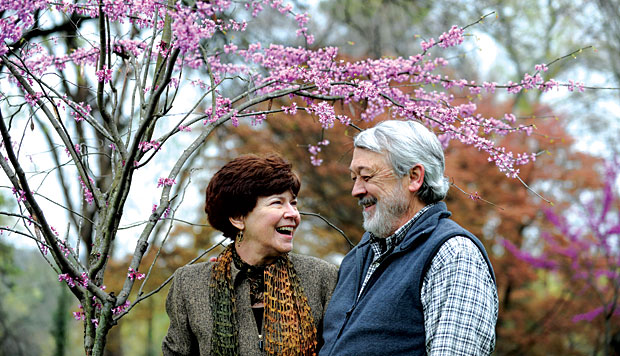
The frequent hospitalizations that had plagued me earlier came to an end during 2010 as well. Because of my improved health, Skip and I were able to resume important family activities that had not been possible the summer before. Once again we spent long, leisurely days on nearby Watts Bar lake. We also returned to our beloved Hilton Head Island, S.C., for two weeks in June.
Early indications are that 2011 will be a good year as well. In January, I had my second annual tests at Vanderbilt. Those tests included the all-important and intimidating CT scan. The following week I was informed that the scan was clear. There were NO enlarged lymph nodes. There was NO cancer!
My husband and I celebrated with quiet prayer. I phoned our children and my sister and posted a jubilant online journal entry so that everyone could share our joy. I also wrote Sabrina and shared my good news with her.
These days Skip and I feel as though our dreams have been restored. We remain grateful to my doctors and nurses for their compassion and skill, to friends and family for their prayers and especially to my Angel Donor for the gift of life – Sabrina will be a part of me forever.
And now – some 10 years after I thought I had retired – maybe I can actually begin to enjoy that “life of leisure” I had hoped for.
Photo(s) By: Photos by Joe Howell
Categories: Spring/Summer 2011 • Stories of Survival
Previous Post: Back at the Bench
Next Post: Big Picture Moments
